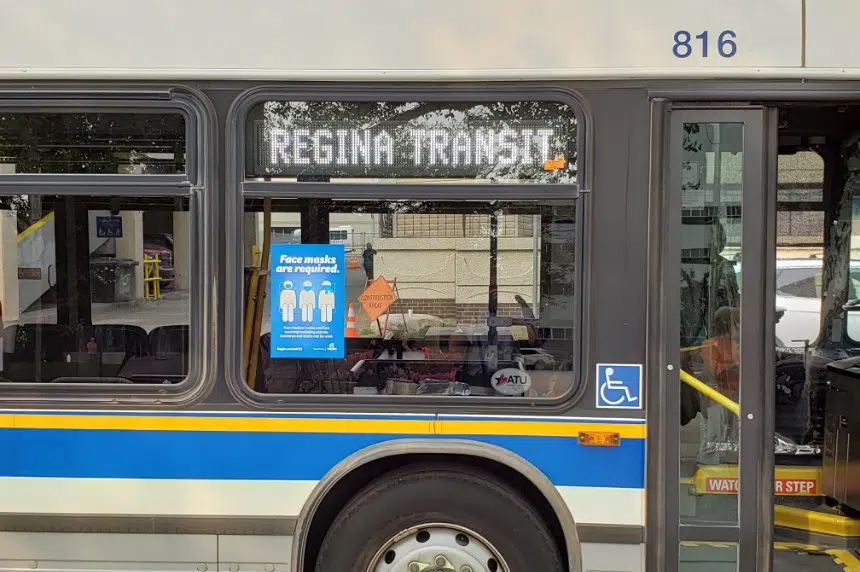The City of Regina is making face coverings mandatory on public transit … but it won’t be enforcing the regulation.
Starting Aug. 31, signs will be posted on buses saying masks or homemade face coverings are required to help prevent the potential spread of COVID-19.
However, in a news release, the city said mandatory mask use won’t be the case for everyone.
“Customers who do not have one will still be permitted to board the bus,” the release said.
Nathan Luhning, Regina’s manager of transit administration, followed up.
“Everyone will be allowed on the bus. Disposable masks will be provided for the first little while at key transit time points. But we are encouraging customers to bring their own,” he said.
On Aug. 13, Mayor Michael Fougere and city councillors encouraged residents to wear masks indoors in public places and on public transit.
In addition to the mandatory mask policy on buses, capacity will be raised on the same day. Every seat on the bus will be fair game, although standing is still not allowed.
Kim Onrait, the executive director of city services, said the change is happening because there has been more demand for public transit lately.
“Our ridership has gone from a low at about 4,000 riders per day, and is now touching on the edge of 9,000 riders per day. So we are trying to find a balance to get people to their destinations … We are also in close communication with the health authority,” he said.
“With this increase in capacity, it means physical distancing will be difficult. Requiring masks is another measure to make transit safer for everyone.”
He said exceptions will be made for children under the age of five, people with medical conditions, and people who need assistance to put on a mask.
However, there will not be enforcement against anyone who doesn’t wear a mask.
“This is mandatory. We will not be asking each customer without a mask their reasoning as per the list of exemptions we provided,” the city later followed up.
“Our approach will be to ask for compliance, work with the passengers, and get compliance. Each situation is different to deal with. We will deal with it accordingly, no differently than how we deal with any of our other situations that come up in our transit operations,” Onrait said.







